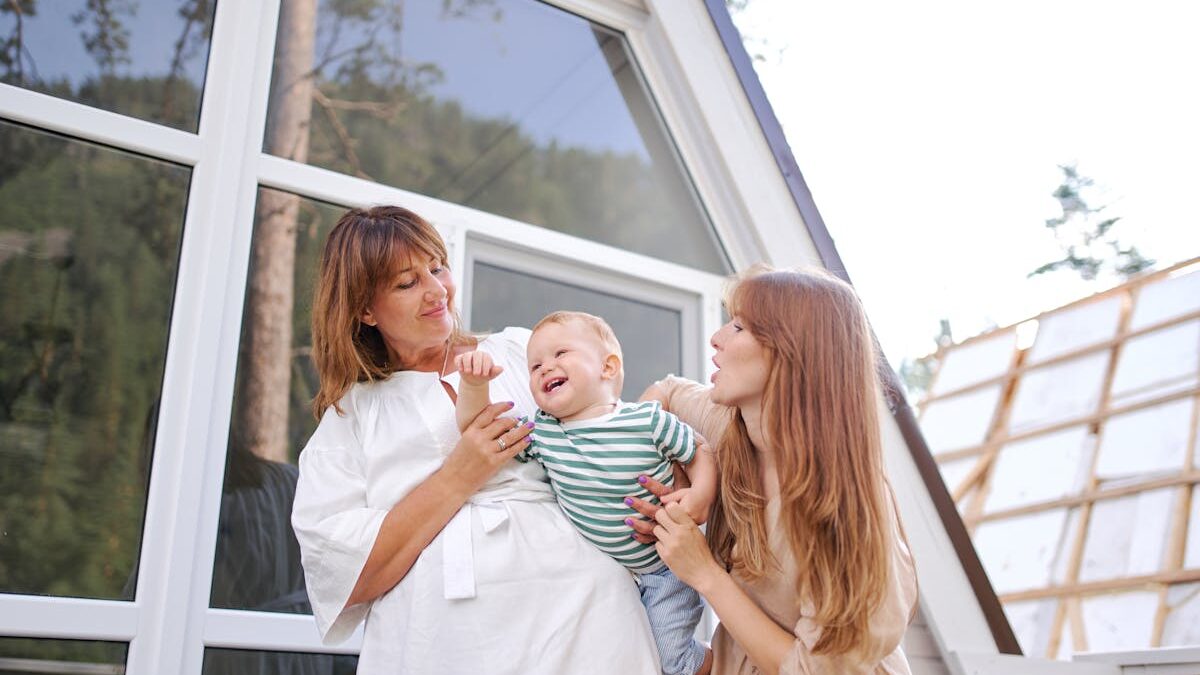From subtle behavioural patterns to entrenched psychological wounds, generational trauma casts a long shadow over families, communities and societies.
We’ve all heard stories of rich ancestors bequeathing immense material wealth as an inheritance for a beloved child or grandchild. And while some families are able to leave wealth in the form of material possessions, all families leave something behind.
That something is in the form of experiences, good and bad.
The term “generational trauma” has become somewhat of a buzzword in recent times. It’s the transfer of traumatic experiences and their psychological effects from one generation to the next. It’s a haunting inheritance, silently shaping the lives of descendants in profound ways. From subtle behavioural patterns to entrenched psychological wounds, generational trauma casts a long shadow over families, communities and societies.
You may think because your family wasn’t abusive, violent or angry, that you have no issues with trauma. However, generational trauma extends far beyond direct abuse.
And generational trauma could be impacting your parenting more than you realise.
The roots of generational trauma
Generational trauma, also known as intergenerational trauma, can stem from a variety of sources. It can be as “extreme” as war, genocide, slavery, displacement and natural disasters. It can also be as “common” as poverty, addiction and abuse. Poverty and systemic discrimination contribute to higher rates of trauma in lower socioeconomic populations, indigenous or black communities.
Traumatic events can leave deep scars on individuals, altering their perceptions, behaviours and even biological responses. Science now knows that a child’s nervous system is highly dependant on their parents’ mental health and cortisol levels. Chronic stress in parents leads to chronically stressed kids. These kids are unable to learn properly, digest food properly or sleep properly.
We also know that parental substance abuse and addictions leave lasting epigenetic changes (gene expression) imprinted in a child’s genetic makeup. High levels of stress hormones can even impact the growing baby inside the womb. This leads to changes to epigenetic mechanisms which result in poor health later in life.
These effects permeate familial structures, becoming ingrained in the fabric of parenting practices and shaping the emotional landscapes of future generations, often completely undetected.
History seeping into the present
Historical trauma doesn’t stay historical. It seeps into the present, wreaking havoc on today. Parents who have experienced trauma often struggle with unresolved issues such as anxiety, depression, post-traumatic stress disorder (PTSD) or substance abuse.
These struggles can manifest in their parenting styles, leading to difficulties in bonding, emotional regulation, communication and boundary-setting with their children. Moreover, trauma can impair a parent’s ability to provide consistent nurturing and support, as they may be preoccupied with their own emotional pain or coping mechanisms.
Unresolved trauma will affect everyone. It does not lay dormant. Insufficient effort to process and heal childhood trauma will damage the health of you and your family, causing negative effects.
But trauma may not always look like trauma.
How generational trauma may look like
Imagine a child growing up in the 1940s, within a family of 12 kids. She’s the youngest of the lot and therefore, by the time she is 10 years old, her parents are more like grandparents than parents.
She misses out on the nurturing attention from her mum and dad. Instead, her siblings stand in as surrogate parents. She never bonds with her parents and although she’s not directly neglected, she has no primary caregiver with whom she has built a deep bond of love and trust.
This results in her turning inward, with generalised feelings of insecurity and lower levels of self-worth. The sensitive childhood that was supposed to be a time of exploration, development and creativity, becomes a world of self-suppression, fear and confusion. The child is stifled and the adult is forced to emerge way before her time.
This child grows up, gets married and starts her own family. She continues on the same patterns of parenting with her children, not developing any close familial bonds or emotional nurturing. Her children cannot turn to her in times of need and distress, just as she couldn’t turn to her parents, and so they turn elsewhere for love and acceptance, often in all the wrong places, just as she also did.
This is but one tiny and seemingly harmless everyday snapshot into the world of generational trauma. It looks nothing like the typical picture of trauma as we often imagine. The poor mental health of an individual doesn’t always stem from “complex trauma”. As a result, it can often go undiscovered, due to the trauma not being identified as trauma.
Generational trauma’s impact on parenting

Generational trauma can manifest in various ways in parenting. Some parents may unconsciously repeat patterns of neglect, abuse or dysfunctional behaviour that they experienced in their own upbringing.
- For instance, a parent who grew up in an abusive household may unintentionally perpetuate the cycle of violence by resorting to similar disciplinary tactics with their own children.
- A parent who was given the silent treatment as a child may stonewall their spouse and children when they become frustrated.
- A parent who never felt loved or wanted as a child may spiral into self-loathing when their child throws a tantrum because they assume the tantrum is a personal attack towards them.
- A parent who never had a place in the family as a child or never given a sense of intrinsic importance may become codependent with their child, stifling both their and their child’s independence, individuality and identity.
Generational trauma often leads to serious abuse, manipulation and years of recovery. One person’s unresolved transgenerational trauma could throw an entire family into mayhem.
Trauma can also manifest as overprotectiveness or hypervigilance, where parents strive to shield their children from potential harm at all costs. While stemming from a place of love and concern, this behaviour can smother a child’s independence, resilience and ability to navigate the complexities of the world.
Speaking with your inner child to stop generational trauma
Here are some questions to ask yourself that may help you discover if you may be carrying generational trauma within yourself—and if it could be affecting your parenting.
- How did you feel as a child?
- If you could name the general theme of your childhood and teenage years, what would it be?
- How did you feel when your family was making decisions?
- Was your home environment peaceful, warm and nurturing? Or did one parent try while the other sought only to ruin it?
- Could you turn to your parent with your concerns and feel truly listened to?
- Did your parents spend quality time with you, giving you their undivided attention and showing genuine interest in you as a person?
- Did you receive harsh comments, negative criticism and unrealistic expectations?
Our inner child is the one who remembers that sweet smell of Grandma’s hugs and how proud she was when she looked at us. It remembers our hearts brimming with joy and love as Mum tucked us in and read us stories at night.
Our inner child remembers showing off our bike-riding skills—with no training wheels—to Dad. It notices the pretty shells, the colourful flowers and hears the bird’s song.
However, over time, the inner child becomes suppressed, pragmatism takes over and adulthood muzzles the innocence and expression of who we are deep inside.
The way you talk to yourself when you accidentally break something may originate from how you were spoken to or made to feel as a child when you broke something. Is there a link between how you treat yourself when you make a mistake and how you treat your child when they make a mistake?
How does the self-talk go inside your head when you’re driving alone, looking in the mirror or laying awake in bed at night? Could that self-talk be stemming from the way you felt as a child?
It’s up to you
Identifying trauma is not about trying to find someone to blame, although responsibility and accountability may often be part of the process. The purpose of identifying trauma is so you can heal and break the trauma cycle, ending the generational trauma with you.
Stepping away from traumatic people may be one of the hardest decisions you ever make, especially if those people are family. Establishing boundaries with family members who have caused adverse experiences in your life might lead to them resorting to name-calling and defaming your character.
However, choosing to keep you and your children safe will not be a decision you regret. When people react poorly to boundaries, it indicates the necessity of those boundaries in the first place.
The intergenerational cycle of trauma can stop with you if you take action and start the process of healing.
Trauma survivors can become thrivers
Science now tells us that almost every mental illness has a story behind it. Instead of asking “What’s wrong with me?” a better question to ask is “What happened to me?”.
Childhood experiences immensely shape the way we view ourselves, others and the world. They therefore have a tremendous impact on the way we parent our children. People are at higher risk of repeating trauma if they do not honestly and openly address their adverse childhood experiences.
Loving and respecting family members does not erase the fact that you have been hurt. You choosing to address the intergenerational effects of your family’s mess doesn’t mean you hate your family or you are throwing away all the positive memories.
It’s a choice to face issues, without excusing them or brushing them away. It’s not for the purpose of pointing the finger, but for the purpose of healing.
For some people, even thinking about childhood trauma can be very confronting, let alone trying to process it. You should not embark on this journey alone. The best way to start identifying trauma is to speak with a mental healthcare provider, such as a psychologist who specialises in childhood trauma. You will be able to work through the pain and “inner child wounds” in a healthy way, in a safe and judgement-free zone. Mental health professionals are able to help you process trauma in a way that is far less triggering than if you were to try and do it alone.
The truth is, healing hurts. But what hurts far more is holding onto trauma your whole life, letting it infect your family, seep into your parenting and then beat you over the head when you’re 75 and wishing you had done things differently.
Choose to help your children today

Your stress response, self-talk and interactions with your kids might all mirror the family unit in which you were raised.
The decisions you make today could completely transform the health of subsequent generations. The intergenerational transmission of trauma is a situation we all face and we all can do something about it.
Your healing and healthy parenting do change the world.
How helpful was this article?
Click on a star to rate it!
0 / 5. 0
Be the first to rate this post!
Adriana Wales
Related posts
Subscribe
Receive personalised articles from experts and wellness inspiration weekly!


